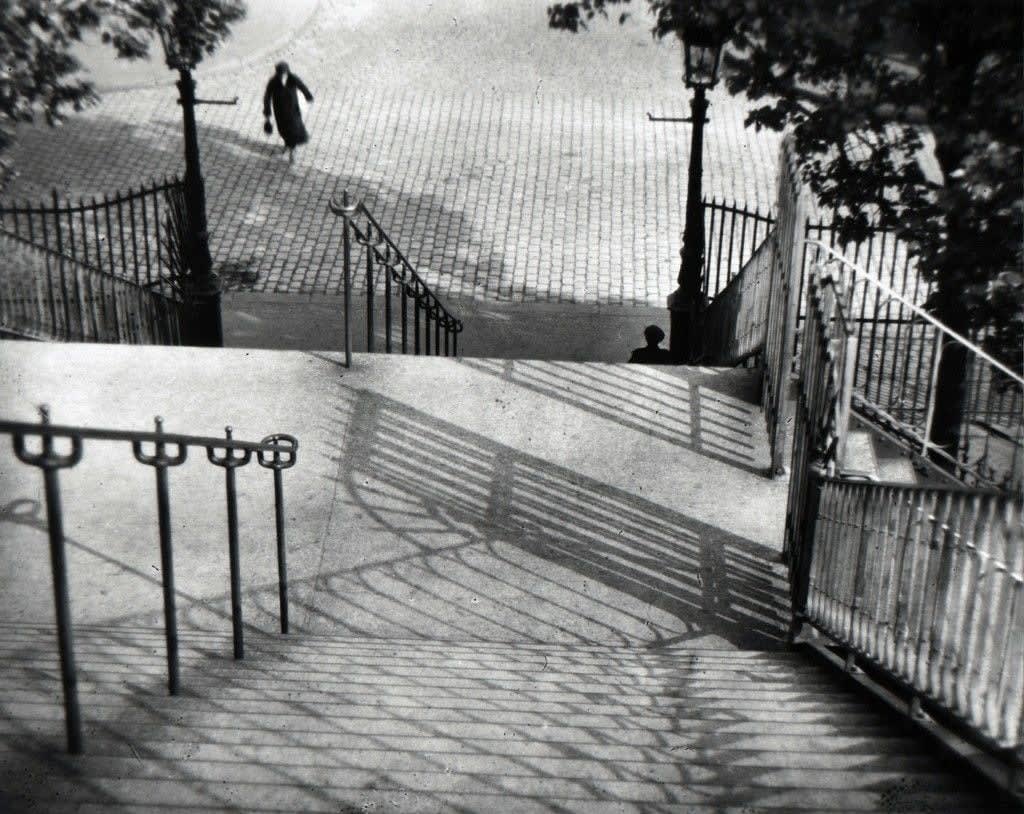
"I do what I feel, that's all. I am an ordinary photographer working for his own pleasure. That's all I've ever done."
~ Andre Kertész
(1894-1985)
Perhaps more than any other photographer, Andre Kertész
discovered and demonstrated the special aesthetic of the small camera. These beautiful little machines seemed at first hardly serious enough for the typical professional, with his straightforward and factual approach to the subject. Most of those who did use small cameras tried to make them do what the big camera did better: deliberate, analytical description.
Kertész had never been much interested in deliberate analytical description; since he had begun photographing in 1912 he had sought the revelation of the elliptical view, the unexpected detail, the ephemeral moment - not the epic but the lyric truth. When the first 35 mm camera - the Leica - was marketed in 1925, to seemed to Kertész that it had been designed for his own eye.
Like his fellow Hungarian Moholy-Nagy, he loved the play between pattern and deep space; the picture plane of his photographs is like a visual trampoline, taut and resilient. In the picture opposite half of the lines converge toward a vanishing point in deep space; the other half knit the image together in a pattern as shallow as a spider web, in which the pedestrian dangles like a fly.
In addition to this splendid and original quality of formal invention, there is in the work of Kertész another quality less easily analyzed, but surely no less important. It is a sense of the sweetness of life, a free and childlike pleasure in the beauty of the world and the preciousness of sight."
~ John Szarkowski
(Looking At Photographs, 100 Pictures from the Collection of The Museum of Modern Art by John Szarkowski)
Paris was a city Kertész loved and the city returned this love. It gave him the inspiration to produce some of his greatest of images. His is one of the longest and most special careers of any of the greatest 20th century photographers, along with his greatest admirer Henri Cartier-Bresson. Together they are at the top of this pantheon. No one has ever captured Paris with such a poetic vision.
